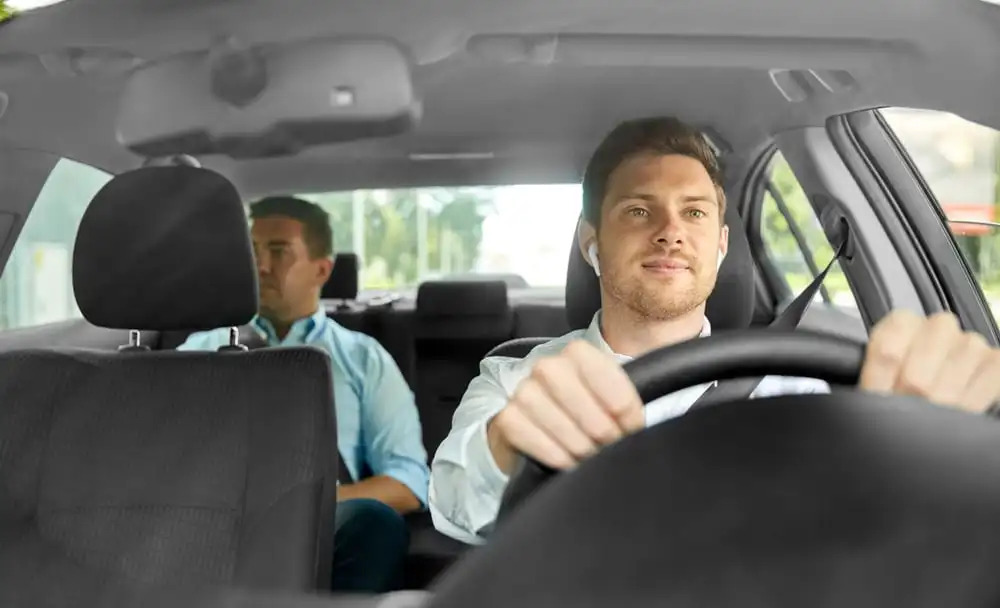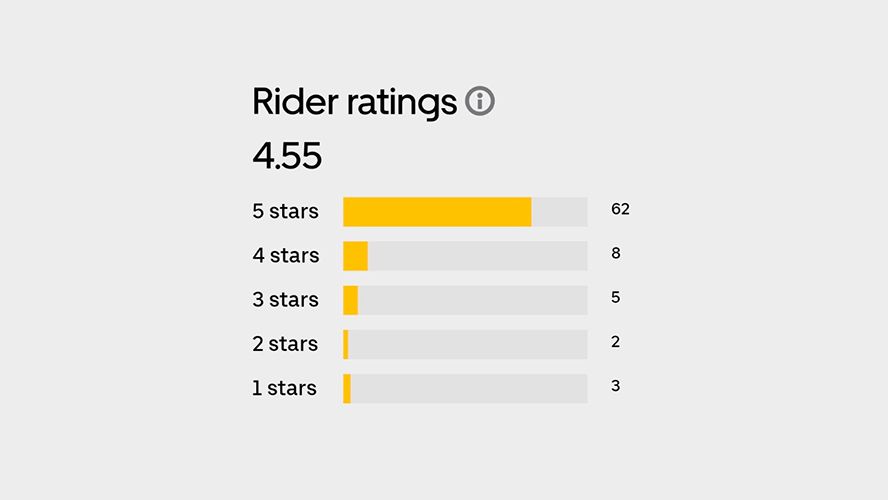Uber Passengers Shocked By Feature Revealing Their 1-Star Rider Ratings
Uber passengers shocked by feature revealing their 1-star rider ratings, uncovering surprising insights into individual riding habits and experiences.
Author:Morgan MaverickReviewer:Raven NoirJan 12, 202433 Shares16.5K Views

If you're one of the millions who regularly use Uber, you're probably familiar with the rating system that allows drivers and passengers to rate each other at the end of each trip.
Some Uber passengers shocked by feature revealing their 1-star rider ratings. This system, often seen as a mark of quality and respect, can sometimes be a source of frustration for those who receive less than stellar ratings.
Behind Uber Ratings
Users with high ratings often feel a sense of pride, viewing their score as a reflection of their exceptional character and behavior. Conversely, those with lower ratings frequently express frustration, feeling unjustly judged by what they perceive as unfair assessments from drivers.
Interestingly, many users are unaware of how to delve into the specifics of their ratings. By navigating through the app settings to the privacy section, users can request a summary of their Uber usage, including a detailed breakdown of the ratings they've received. This feature sheds light on the elusive numbers behind the overall score.
The rating system in Uber is an average of the last 500 trips. Thus, a few poor ratings can significantly impact a user's score.
The rating system calculates an average based on a user's most recent 500 trips. Therefore, a series of negative experiences can significantly impact one's rating for an extended period, making it challenging to improve the score quickly.
What Your Score Says About You
Many users, upon reviewing their ratings, find themselves in agreement with the overall score. They recognize the fairness in their rating, acknowledging forgotten trips that might have not gone as smoothly as others. However, not all agree with the ratings they've received.
One user expressed their bewilderment, stating, "Idk why. I don’t even drink. I’m always polite, even if I don’t want to talk to them if they engage I’ll reciprocate."
From the driver's perspective, handing out one-star ratings is not a common practice.
As one driver shared, "I’ve given only about three one-star reviews for passengers in three years, and that was with working the dreaded night shift." This insight suggests that receiving a one-star rating is a rare occurrence, reserved for exceptionally poor behavior.
Some users humorously shared their misadventures leading to low scores. "That poor driver," remarked a user who received one-star ratings due to unfortunate incidents in the cab.
The ratings are influenced by various factors, including behavior during the ride. For instance, being disruptive or rude can negatively impact a passenger's rating. The driver's experience also plays a role in how they rate passengers.
Many taxi drivers prefer a quiet environment during rides, appreciating passengers who either enjoy the ride in silence or are comfortable with the driver playing their choice of music.
Conversely, some drivers appreciate engaging conversations, especially about local attractions and activities. This interaction can enhance the ride experience for both the driver and the passenger, potentially leading to better ratings.
Conclusion
Uber's rating system is a complex interplay of behaviors, expectations, and subjective experiences. While high ratings are a badge of honor for many, the system is not without its flaws and frustrations. Understanding the mechanics behind these ratings can help users improve their scores and ensure a more pleasant experience for all parties involved.

Morgan Maverick
Author
Morgan Maverick is an unorthodox news reporter driven by an insatiable hunger for the truth. Fearless and unconventional, he uncovers hidden narratives that lie beneath the surface, transforming each news piece into a masterpiece of gritty authenticity. With a dedication that goes beyond the boundaries of conventional journalism, Morgan fearlessly explores the fringes of society, giving voice to the marginalized and shedding light on the darkest corners.
His raw and unfiltered reporting style challenges established norms, capturing the essence of humanity in its rawest form. Morgan Maverick stands as a beacon of truth, fearlessly pushing boundaries and inspiring others to question, dig deeper, and recognize the transformative power of journalism.

Raven Noir
Reviewer
Raven Noir is a captivating and enigmatic news reporter who unravels mysteries with a relentless pursuit of truth. Possessing an insatiable curiosity and an astute mind, Raven delves into the depths of complex stories, unearthing secrets that lie beneath the surface. With a masterful grasp of deduction and observation, Raven stands as a beacon of fearless investigation.
In the realm of journalism, Raven is known for his enigmatic presence, drawing people in with an aura of intrigue. Driven by an unwavering passion for unveiling the truth, Raven Noir continues to shed light on the darkest corners of society. Through captivating storytelling and unwavering determination, he challenges conventions and uncovers enigmatic secrets that lie just beyond the surface.
Latest Articles
Popular Articles
